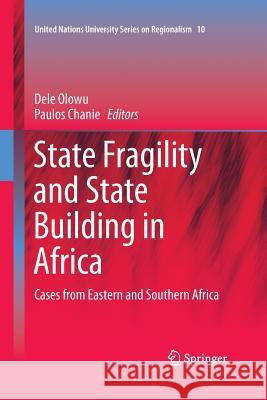State Fragility and State Building in Africa: Cases from Eastern and Southern Africa » książka
topmenu
State Fragility and State Building in Africa: Cases from Eastern and Southern Africa
ISBN-13: 9783319357058 / Angielski / Miękka / 2016 / 249 str.
State Fragility and State Building in Africa: Cases from Eastern and Southern Africa
ISBN-13: 9783319357058 / Angielski / Miękka / 2016 / 249 str.
cena 201,72
(netto: 192,11 VAT: 5%)
Najniższa cena z 30 dni: 192,74
(netto: 192,11 VAT: 5%)
Najniższa cena z 30 dni: 192,74
Termin realizacji zamówienia:
ok. 22 dni roboczych
Bez gwarancji dostawy przed świętami
ok. 22 dni roboczych
Bez gwarancji dostawy przed świętami
Darmowa dostawa!
Kategorie BISAC:
Wydawca:
Springer
Seria wydawnicza:
Język:
Angielski
ISBN-13:
9783319357058
Rok wydania:
2016
Wydanie:
Softcover Repri
Ilość stron:
249
Waga:
0.36 kg
Wymiary:
23.39 x 15.6 x 1.4
Oprawa:
Miękka
Wolumenów:
01
Dodatkowe informacje:
Wydanie ilustrowane











